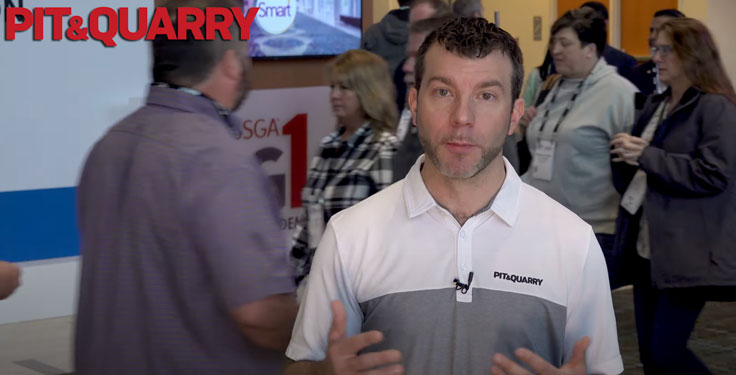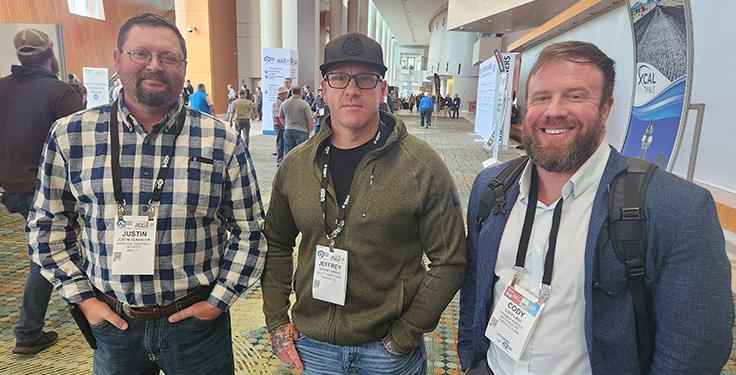Motivational speaker imparts safety messages at OSSGA seminar
The Ontario Stone, Sand & Gravel Association (OSSGA) invited Curtis Weber, a motivational speaker, to share his workplace accident survival story at the 2017 Operations, Health & Safety Seminar in Toronto.
Weber described the tragic 1999 day – his third day on the job as a construction laborer at a new company – and how it nearly took his life. He described how his crew attempted to transport a grain bin under a power line with a picker truck. Despite assessing the risk the power line posed, the crew continued working until a crane operator backed directly into the power line.
Weber, who was 17 at the time, instantly became a ground point for electricity, which surged through his body three separate times. The accident cost Weber an arm and a leg, and 60 percent of his body was affected with third- and fourth-degree burns.
“For me, the real tragedy was that it was preventable on so many different levels,” Weber says. “It was preventable from the organization not having processes [in place], but even more so with me not speaking my mind and voicing that concern.”
Although Weber was only on his third day on the job for this particular company, he had plenty of experience on such jobs because he had been working in his particular industry all his life, he says. He recognized the power line hazard on this particular day, yet, as he reflects 18 years later, he did not speak up and state his concern.
“We need to look at ourselves,” Weber says. “I had every opportunity to put my hand up and say this is not the good way to be doing this task.”
Don’t necessarily assume others have your best interest in mind, he adds.
“I was sure my boss wouldn’t let that happen; that my foreman wouldn’t let that happen,” he says.
Events earlier that day, a Friday, also played a role in Weber’s accident, he says. Weber’s work crew started the day with the understanding that they’d be completing two routine jobs before breezing into the weekend. But when the workday’s first job took longer than everyone expected, the crew’s attitude shifted. Now, they simply wanted to complete the second job as quickly as possible so they could enjoy a full weekend.
“When we got to the second jobsite, we were now likely going to be home after supper – probably after dark,” Weber says. “And, if things didn’t go right with that job, we realized we might have to come back on Saturday to finish it.”
The crew’s positive vibe morphed into frustrations. And those frustrations contributed to the accident, Weber says.
“Let’s just get the job done,” says Weber, describing the attitude that emerged among the crew. “We started taking shortcuts and not having conversations around hazards because we wanted to get ourselves going.”
Weber’s presence at the OSSGA seminar was not to draw sympathy but rather to impart a number of takeaways onto the aggregate producers in attendance. For example, Weber discussed the potential value of an orientation.
“This is something I’d never had,” says Weber, referring to his work with the new company. “Even an informal discussion prior to starting my job [would have helped]; if they had said, ‘Kid, if you have a question or a concern, come to us and ask it because that’s the culture we have.'”
Assessing risk is another point Weber stressed, but don’t just identify risks – communicate them to others, and don’t let them become part of the job at hand.
“Typically, we’re a little less inclined to speak up and ask questions the first couple of weeks on a new job,” he says. “Maybe we’re even less inclined to speak up in the middle years of our careers because we want to look confident.”










